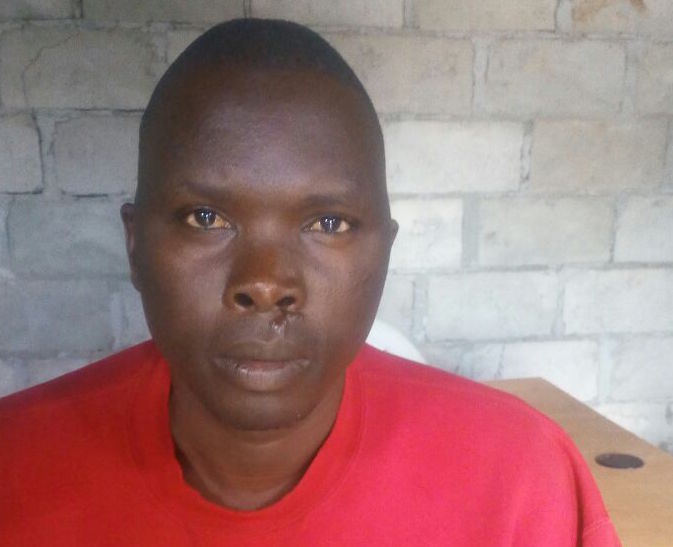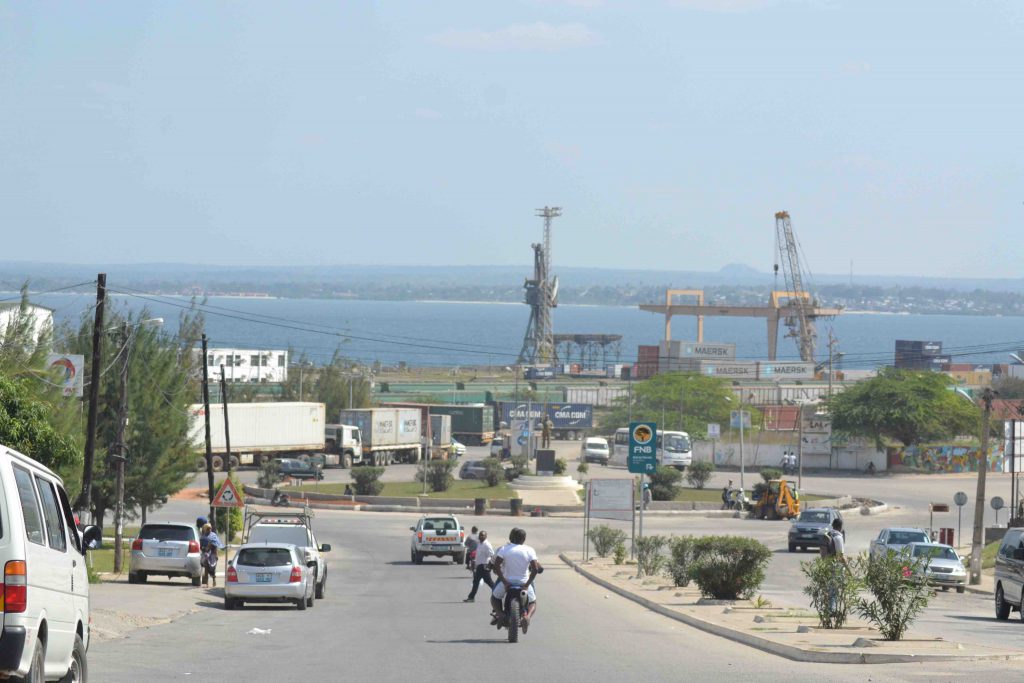
07 Nov East Africa’s ivory smuggled out of Mozambican ports
The modus operandi of ivory smuggling networks was exposed with the recent arrest of a suspected kingpin in the illicit trade from Pemba to China. Estacio Valoi investigates

Nacala harbour: Shipping and customs agents at the ports facilitate the smuggling of ivory in containers that are sent to Shuidong, a town in southern China that recently emerged as the hub of ivory trafficking into Asia. Photos: Estacio Valoi
After tighter monitoring was applied recently at the Dar es Salaam harbour in Tanzania, East African ivory smugglers moved their export hub to northern Mozambique ports.
Tanzania remains the logistical centre from where the smuggling networks access money and equipment, but evidence shows they increasingly use Mozambican ports such as Pemba, Nacala and Beira to transfer illicit ivory consignments to Asia.
Most of the ivory comes from Niassa National Reserve, Mozambique’s largest game reserve which shares a border with Tanzania. In 2014 Oxpeckers reported that the killing of elephants for ivory was taking place on an “industrial scale” in Niassa, and official complicity was aiding the slaughter. More than 10,000 elephants have been slaughtered in Niassa over the past five years, reducing the population by more than 70%.
Almost three years of monitoring the smuggling networks operating out of Niassa indicates they have vast financial and logistical support from high-ranking contacts, allowing them free and easy mobility everywhere they need to be.
In Pemba and Nacala a network cell of 10 members set up their base at local hotels, and conducted their business via an electronics shop belonging to a Chinese national located in the building where the provincial association for hotel and tourism (CEDUTUR) is based in Pemba city.
Shipping and customs agents at the ports facilitate the smuggling of the ivory in containers that are sent to Shuidong, a town in southern China that recently emerged as the hub of ivory trafficking into Asia. A recent report by the Environmental Investigation Agency revealed that “up to 80% of tusks from poached elephants in Africa pass through Shuidong”.

Mateso Kasian, the 39-year-old Tanzanian ‘mastermind’, led up to seven poaching gangs in southern Tanzania before moving his operations to northern Mozambique
Master poacher
The modus operandi of the networks was exposed with the arrest earlier this year of Mateso Albano Kasian, alleged mastermind in the illicit ivory trade from Pemba to Shuidong.
Kasian was arrested in northern Mozambique in July 2017 by a transnational task team comprising officials from Niassa reserve, Mozambique’s National Administration of Conservation Areas (ANAC) and National Criminal Investigation Service, working in collaboration with Tanzania’s National and Transnational Serious Crimes Investigation Unit and the attorney general of Mozambique.
Kasian is still detained in Mieze maximum-security prison, about 20km from Pemba, awaiting extradition to Tanzania.
Sources inside Niassa said Kasian is a “master poacher” who “supplies firearms, cars, food and other necessities for his network. If they break the criminal network’s code of conduct, they get severe punishment. Remember Pablo Escobar? That’s his style.”
Kasian is a 39-year-old Tanzanian citizen operating with aliases in Mozambique. When he was 37, he acquired an illegal Mozambican identity with the registered name of Martino Adamo Muinduma. He also has a South African name which he did not reveal.
On July 19 he was convicted of illegal identity possession and sentenced in the Montepuez District Court. He was sent to Mieze prison the next day and was transported in a blue and green police car, which this reporter tagged in order to ensure he did not end “escaping” en route.

In Pemba and Nacala a network cell of 10 members set up their base at local hotels. Map courtesy WordTravels.com
Kasian’s connections
Kasian is well connected to high-ranking Mozambican politicians. A local intelligence source said “he has two ministers backing him”, as well as police officials and scouts working inside Niassa and the Quirimbas National Park in neighbouring Cabo Delgado province. Poachers using “sophisticated weapons” and helicopters reduced the Quirimbas elephant population from 2,000 in 2008 to 517 by 2011, according to the Worldwide Fund for Nature (WWF).
Kasian had been on the run from the justice system for many years. “We have been looking for Mateso [Kasian] for the past eight years and an international warrant against him was released five years ago in Tanzania,” said a member of the Niassa investigative unit.
It is alleged that, in addition to conniving with local authorities and political leaders, Kasian offered a car to one of the judges in the case against him in an attempt to bribe him.
Evidence against him shows he worked with Chinese and Vietnamese networks, and was the leader of a group of poachers suspected of the massive killing of elephants within Niassa. He also allegedly operated networks in Selous Game Reserve in Tanzania and South Africa’s Kruger National Park.
According to the Wildlife Conservation Society, which co-manages the Niassa National Reserve, Kasian led up to seven poaching gangs in southern Tanzania in 2013 before moving his operations to northern Mozambique.
Attempts to interview Kasian on the day he was transferred from the Montepuez court to Mieze prison, and the next day at the prison, proved unsuccessful. The Cabo Delgado provincial attorney general involved in the case, Octavio Zilu, refused permission and weeks later referred questions to Montepuez district attorney Misterio Mitelela. No answers have yet been received.
Kasian is expected to be extradited to Tanzania, where he is alleged to have committed a slew of crimes. “Paper work is taking place and we expect to extradite him as soon as possible,” said sources from the joint team working on the case. Attempts to obtain an update from district attorney Mitelela in late October received the response, “Will call you later. I’m in a meeting.”
Mozambique’s recently revised Law of Protection, Conservation and Sustainable Use of Biological Diversity provides for prison sentences of 12 to 16 years and a fine for offenders convicted of involvement in the poaching or trafficking of protected species. The law could be applied to all Kasian’s networks members.
From 2009 to 2013, more than 15 cases were assembled by investigative teams against members of Kasian’s network alleged to be involved in poaching and the illegal use of firearms such as AK-47s in the Quirimbas National Park.
The cases were submitted to the provincial attorney general’s office and the provincial courts, but they were not tried and no convictions were achieved. “After the evidence was handed over to the local police, the poachers were later released back to the bush after three days,” said security officials and scouts in Quirimbas. – oxpeckers.org
This investigation by Oxpeckers Investigative Environmental Journalism was supported by the Organised Crime and Corruption Reporting Project
